When we study the piano, one of the popular pieces we learn is Felix Mendelssohn's such as "Songs Without Words". When we get older, we enjoy Mendelssohn's symphonies (such as the "Scottish" and the "Italian"), oratorios (such as the "St. Paul" and "Elijah"), overtures, and the incidental music to Shakespeare's "A Midsummer Night's Dream". When we get married, we walk out of the church listening to Mendelssohn's "Wedding March". Let us explore Mendelssohn's life and wonderful works.

Mendelssohn: The Genius Who Wrote The Hebrides Overture
Felix Mendelssohn was a composer of the Romantic period. Mendelssohn's beautiful works combined a classical form combined a romantic style.
Mendelssohn's Life
The grandson of Moses Mendelssohn who was a well-known philosopher, Felix Mendelssohn was born in Hamburg in 1809.
He showed musical talent at an early age and studied. He studied music -- first, at home, then in Paris and then in Berlin. He had his first public performance at the age of nine and produced his first musical composition by the time he was thirteen years old.
Early Great Works
At the age of 16 and 17 he composed two works which showed his full musical genius -- the String Octet in E-flat major (1825) and the Overture to Shakespeare's A Midsummer Night's Dream. (In 1842 he also wrote incidental music for that play, including his well-known Wedding March, which is still played at many weddings today).
Apart from music, he also studied art, literature, philosophy, history and languages.
Goethe. Bach Revival.
In 1821 Mendelssohn was introduced to Goethe, who was impressed by the young man and compared him to another musical prodigy, Mozart. Mendelssohn was to set a number of Goethe poems to music.
In 1829 Mendelssohn arranged and conducted the performance of Johann Sebastian Bach's St Matthew Passion. This work (and its composer) had been all but forgotten until this performance (its most recent performance had been in 1750). This performance was an important factor in the revival of the great composer, Bach.
Foreign Travels
Mendelssohn now began to travel around Europe, including to Britain, Italy and Austria. He was to visit Britain ten times in all. While in London in 1829 he conducted his Symphony No. 1 in C minor.
His visits to Scotland inspired him to write The Hebrides overture (1829)(also known as Fingal's Cave overture, after the cave of the same name on the island of Staffa which he visited) and the Scottish Symphony (1830-42).
Similarly, his travels in Italy inspired him to create the Italian Symphony (1833).
During his final visit to Britain in 1849 he conducted his Scottish Symphony before Queen Victoria and Prince Albert.
Other major works he composed in the 1830s and 1840s included his oratorios St Paul (1846) and Elijah (1846).
Leipzig, Berlin
In 1835 Mendelssohn took up his duties as the conductor of the Leipzig Gewandhaus Orchestra. He became very involved with developing the musical life of Leipzig. In 1843 he founded an important music school in Leipzig, the Leipzig Conservatory.
From 1840 he spent some time in Berlin, working on a proposed cultural center for that city.
In 1847 Mendelssohn died in Berlin, aged 37, after a number of strokes.
Mendelssohn's Violin Concerto in E Minor
Mendelssohn's Musical Works
Some of Felix Mendelssohn's key musical works included:
Symphonies: Six in all, including his Symphony No. 3 in A Minor (known as the Scottish Symphony), Symphony No. 4 in A major (Italian Symphony), Symphony No. 5 (Reformation Symphony), and his choral Symphony in B-flat major.
Orchestral Overtures: Including the overture to Shakespeare's A Midsummer Night's Dream (1826) and The Hebrides Overture (also known as Fingal's Cave) (1830).
Concertos: For example, the Violin Concerto in E Minor (op. 64)(1844).
Choral Works: These include the oratorios, St Paul (1836) and Elijah (1846), various Christian anthems (such as Hear My Prayer), and the tune which was adapted for Charles Wesley's hymn Hark the Herald Angels Sing.
Songs: Many songs, either for solo voice or for duet accompanied by piano, such as Auf Flügeln des Gesanges (On WIngs of Song), a poem by Heinrich Heine set to music by Mendelssohn.
Piano Music: Many solo piano compositions, for example, the 48 songs of Songs Without Words (Lieder ohne Worte).
Organ Music: The best-known are the organ sonatas entitled Six Sonatas, Op. 65.
The Hebrides Overture (by Felix Mendelssohn)
The Musical Legacy of Mendelssohn
Felix Mendelssohn wrote during the Romantic era of music but resisted the more revolutionary advances pioneered by Chopin, Berlioz, Wagner and Liszt.
His works were more conservative and looked back to the Classical era. They show the nobility of the Classical era, with Mendelssohn's own poetic sensibility, lightness and effervescence, as applied to Romantic and descriptive themes. Some critics say that Mendelssohn combined classical form with romantic style.
Mendelssohn's On Wings of Song
Violinist: Jascha Heifetz
Mendelssohn on the Internet
What Mendelssohn said and what others said about him.
Felix Mendelssohn
Biography of the composers life, including a portrait.
More Classical Music Articles
You might also like
Beethoven: The Genius Who Composed The Moonlight SonataLudwig van Beethoven is probably the best known composer of classical music. ...
Music Book Review: Handel's Bestiary by Donna Leon, With CD of...Handel's Bestiary by mystery writer Donna Leon brings together a CD of one an...
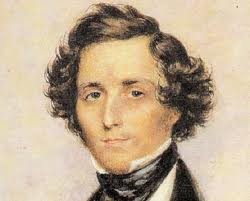




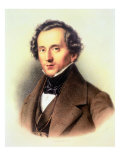
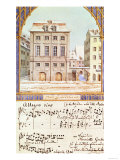
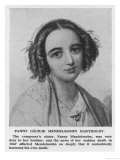




 Ancient Rome: History and Heritageon 02/28/2012
Ancient Rome: History and Heritageon 02/28/2012
 Ancient Greece: History and Heritageon 10/14/2012
Ancient Greece: History and Heritageon 10/14/2012
 Schumann: The Genius Who Composed Scenes From Childhoodon 04/29/2012
Schumann: The Genius Who Composed Scenes From Childhoodon 04/29/2012
 Mahler: The Genius Who Composed the Resurrection Symphonyon 03/04/2012
Mahler: The Genius Who Composed the Resurrection Symphonyon 03/04/2012

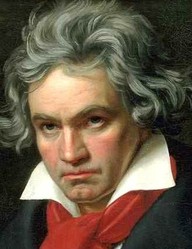
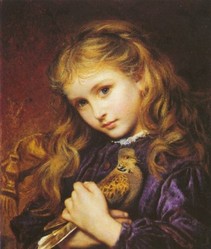
Comments
What an interesting background, Mendelssohn is another great I knew little about until now. I adore the romantic era.